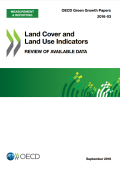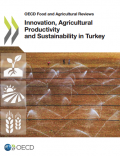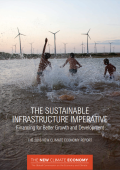The green economy in North America is at a critical crossroads. Will it foster a new wave of economy-wide innovation, employment, and green growth, or will green sectors remain a niche within an overall “brown” economy? Much will depend on what replaces the current “policy void” since the green stimulus policies of the Great Recession. Currently, three major market disincentives remain: environmentally harmful subsidies, inadequate market-based incentives, and insufficient public support for private R&D. A policy strategy for green growth requires phasing out and rationalizing subsidies, instigating effective market-based instruments, and allocating the revenues raised to enhance green innovation.
This article was published in a special edition of Canadian Public Policy, “Big Ideas for Sustainable Prosperity: Policy Innovation for Greening Growth”, guest edited by the Smart Prosperity Institute.
Over the past year, momentum towards a sustainable financial system has deepened, with a specific focus on green finance and climate risks. Clear pathways are bringing together three critical elements: market leadership by financial institutions; policy and regulatory innovation; and, over time, changes in governance, standard and norms. The precise blend and sequencing of these factors differs according to the issue at hand and country level financial cultures.
The result of these actions is the beginning of a new powerful dynamic between the financial system, real economy and progress toward sustainable development. Looking across the range of policy and regulatory measures under way that are driving this dynamic, five priority areas stand out: capital reallocation; risk management; the responsibilities of financial institutions; reporting and disclosure; and national roadmaps for sustainable finance (the '5R's). Added to this, the role of public financial institutions in both market creation and setting market norms is becoming clearer. The linkages between monetary policy and environmental outcomes are also increasingly a focus of attention.

This paper identifies opportunities to refine OECD’s indicators of land cover and land use and their regular production for all OECD and G20 countries. A comprehensive review is conducted of the available datasets at the global, regional and national levels, including data derived from remote sensing as well as those complemented with administrative and survey data. The datasets are assessed in terms of their geographic coverage, periodicity, spatial resolution, data reliability and comparability. The paper discusses the potential use of such datasets for the production of indicators that are harmonised across countries and over time. It is found that data on land cover are widely available and that many OECD countries have good-quality national land cover datasets, in some cases consistently over time. However, considerable differences have been found among the land cover products reviewed in terms of their geographic coverage, spatial, temporal and thematic resolution. For eight countries, no country- or region-specific data could be found (including Israel, Korea, Colombia, Costa Rica, India, Indonesia, the Russian Federation and Saudi Arabia).


